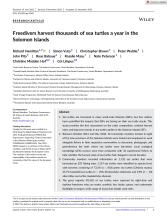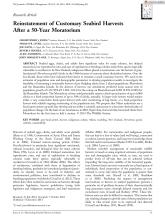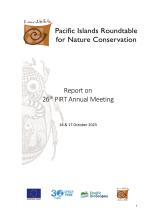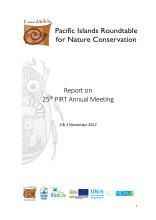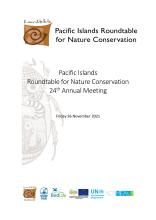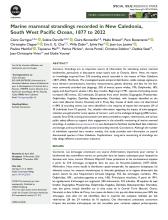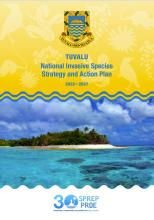Tuvalu National Invasive Species Strategy and Action Plan 2022 - 2027
Secretariat of the Pacific Regional Environment Programme (SPREP)
2023
Biodiversity is a term that describes the number and diversity of the different plants, animals, and other living things within our environment. Biodiversity is a key factor in natural resilience to the impacts of environmental change. All species contribute to environmental resilience, including those that are naturally common and those that are rare. Natural biological communities have evolved over thousands or millions of years and have resulted in adaptations to local conditions that make these species resilient to natural environmental change. This community of native species contributes to ecosystem functioning and together provides the ecosystem services that we rely on. These services include provisioning (such as food, fuel, raw materials, or medicines), regulating (such as providing clean water and air, climate regulation and flood protection, waste decomposition, and biological pest and disease control), supporting (such as nutrient cycling), and cultural services (such as spiritual and heritage value, recreation, and science). When ecosystems are disturbed or disrupted, due to habitat modification, overharvesting, or invasive species, their function is affected, the benefits they offer decline, and resilience to further change is reduced. In this time of unprecedented global environmental change, protecting biodiversity is more important than ever to ensure we can retain the benefits of the natural world on which all our lives depend

